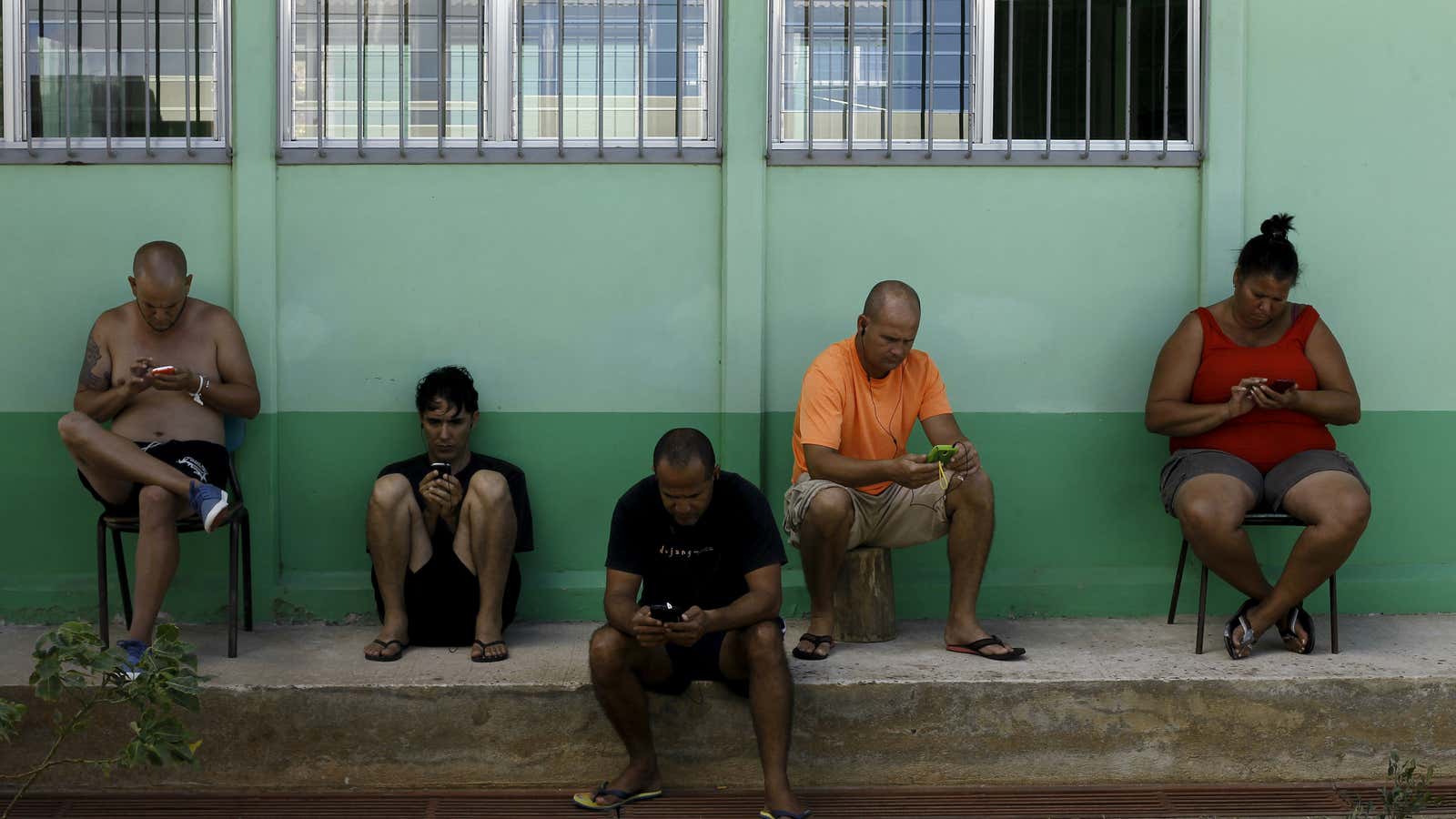Endless, a San Francisco-based startup, recently unveiled a tiny, spherical desktop computer, which it says will revolutionize computing in the developing world, thanks to its price tag of just $79. That price doesn’t get you a monitor, keyboard, mouse, or Wi-Fi. The idea is that you plug it into your TV.
Matt Dalio, CEO and founder of Endless, says it’s for the 4.4 billion people who are offline around the world. “The PC is not dead. The PC industry may be dead,” he says. “But people still want a computer.”
That last point may be true, but today in many parts of the world, a computer is more likely to come shaped as a smartphone than a PC. Take India. Last month, the country’s telecom regulator said it now has 1 billion mobile users. Ericsson estimates that there will be over 6 billion smartphone users worldwide by 2020. Meanwhile, global PC shipments slumped 10.6% in that last three months of 2015, according to IDC.
That’s why Vivek Wadhwa, a Delhi-born tech entrepreneur and academic, isn’t terribly impressed. “With the cost of smartphones dropping to the $50 level, this is a nice luxury to have, but it’s not transformative to the developing world where people are jumping straight into phones and apps.”
Yet Dalio believes his Endless PC will be embraced by people who don’t have access to the internet. It even comes preloaded with some of the content you might find on the internet, like Wikipedia and Khan Academy. (More expensive models have Wi-Fi, so that you can connect to the internet if you want to.)
It will sound familiar to those of you who recall a similar project from a decade ago: One Laptop Per Child (OLPC) led by MIT professor Nicholas Negroponte. Back then, he aspired to give $100 laptops to the developing world, but the project never made much of an impact. Negroponte is now an advisor to Endless.
Nick Martin, founder of TechChange, a DC-based company that offers online classes on technology for international development, uses OLPC as a case study for his courses—a case study about how good intentions went wrong.
“I have students explore all things that a group of very smart people got wrong in trying to bring laptops to developing countries,” he says, and goes on to list flaws such as no teacher training, underestimating maintenance issues, the difficulty of getting governments to agree to bulk shipments, and attempting to build an entire operating system from scratch.
The Endless team say they learned from OLPC’s mistakes, and did extensive market research in Brazil and Guatemala to come up with a better version. Yet, Will Chester, TechChange’s CTO, has more technical concerns about Endless, particularly its custom operating system.
“Using this machine, you are tightly bound to the Endless ecosystem. This seems needlessly restrictive,” he says.
“The developing world has cast its vote,” saysMartin, “for the smartphone as the digital device of choice.”
